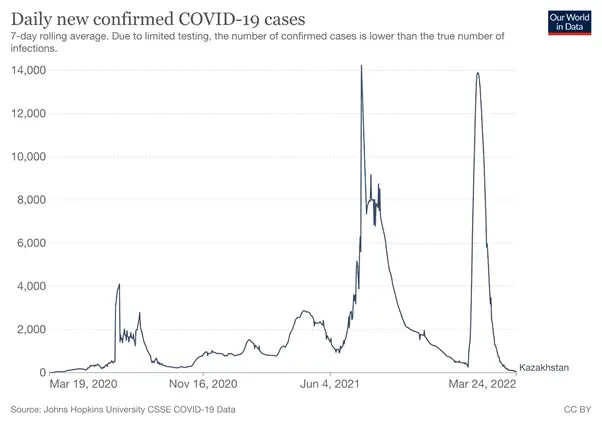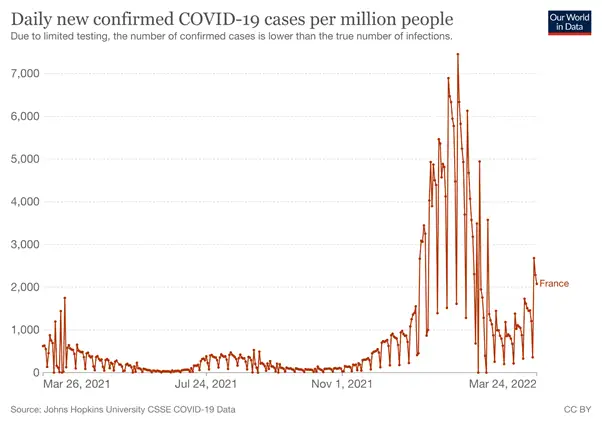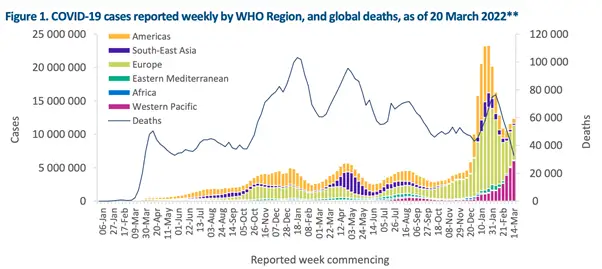Kazakhstan lifts mask requirements, extends Pfizer vaccine coverage

The decision to lift some of the major restrictions was made during the Thursday meeting of the interdepartmental commission on the prevention and spread of coronavirus infection chaired by Deputy Prime Minister Eraly Tugzhanov.
Wearing medical masks remains mandatory in medical organizations for its personnel, patients, and visitors and recommended in public places and public transport.
The Pfizer vaccine, which was delivered to Kazakhstan in November 2021, will now be available for people receiving primary vaccination, and revaccination. Tugzhanov emphasized that one of the main conditions for ensuring a favorable epidemiological situation is timely vaccination and revaccination of citizens.
Kazakhstan has now one of the lowest incidence rates since the pandemic began. The daily cases stand at around 23, while the total number of cases exceeds 1.3 million.

Vaccination is also ongoing with 9.4 million people receiving at least one dose of a COVID-19 vaccine and over 9.1 million receiving the full course of vaccination.
Global COVID-19 situation
Kazakhstan is not the only country deciding to lift coronavirus restrictions.
Starting from March 23, South Africa, where the omicron variant was first identified, also lifted restrictions for vaccinated citizens allowing them to visit sports stadiums, music, and theatre shows with up to 50 percent of its capacity. It also lifted a PCR test requirement for inbound tourists to boost tourism.
«With these changes, almost all social and economic activity restrictions will have been lifted,» said President of South Africa Cyril Ramaphosa on Twitter in his video address announcing the news.
However, the requirement to wear masks will remain mandatory in indoor public spaces. As of March 25, South Africa reported more than 3.7 million confirmed cases, including over 99,000 deaths.
Some countries in Europe, including Germany, France, Italy, and Britain, also lifted coronavirus restrictions.
In Germany, its Parliament voted to end restrictions last week despite the surge in cases. It would relinquish nationwide mask requirements, except in facilities where there are vulnerable groups of population and on public transport. The measures will remain in place until April 2.
Since the pandemic began, Germany reported more than 19,893,028 laboratory-confirmed cases of COVID-19, according to the data from the Robert Koch Institute. Over the past day, it confirmed 296,498 new cases of COVID-19.
The latest data also showed 288 coronavirus-related deaths, while the seven-day incidence rate of infection has reached 1,756 new infections per 100,000 people.

The cases are on the rise in France, which also decided to lift most COVID-19 restrictions on March 14 due to positive dynamics in the COVID-19 situation. Since then, people in France do not have to wear face masks indoors, except in public transport, hospitals, and other medical organizations. People also do not have to have a COVID vaccine pass to visit such places as bars and cinemas.
«France reported an average of close to 90,000 new coronavirus infections over the last seven days, marking a 36 percent rise from one week ago when most Covid-19 health protocol measures were lifted by the government just ahead of the country's elections,» Reuters wrote.
So far, France has reported more than 24.8 million cases of COVID-19 and close to 143,000 coronavirus-related deaths.

According to World Health Organization Director for Europe Hans Kluge, countries in Europe are lifting restrictions «too brutally from too much to too few.»
The WHO remains cautious and calls upon extra vigilance due to the BA.2 sublineage of the omicron variant.
«BA.2 differs from BA.1 in its genetic sequence, including some amino acid differences in the spike protein and other proteins. Studies have shown that BA.2 has a growth advantage over BA.1. Studies are ongoing to understand the reasons for this growth advantage, but initial data suggest that BA.2 appears inherently more transmissible than BA.1, which currently remains the most common Omicron sublineage reported. This difference in transmissibility appears to be much smaller than, for example, the difference between BA.1 and Delta,» reads the WHO statement on Omicron sublineage BA.2.
In its weekly epidemiological update, WHO said there was a «consistent decrease» in cases since the end of January, but the number of new weekly cases grew by 7 percent for a second consecutive week, compared to the previous week. Globally, there were over 468 million confirmed cases and over 6 million deaths.

The highest number of new weekly cases were reported from South Korea (2.8 million new cases; +34 percent), Vietnam (1.8 million new cases; +13 percent), Germany (1.5 million new cases; +14 percent), France (582,344 new cases; +39 percent), and Australia (513,388 new cases; +161 percent). The highest number of new weekly deaths were reported from Russia (3,681 new deaths; -19 percent), the United States (3,612 new deaths; -58 percent), Brazil (2,242 new deaths; -32 percent), South Korea (2,033 new deaths; +41 percent), and China (1,921 new deaths; -2 percent).
Article by Assel Satubaldina